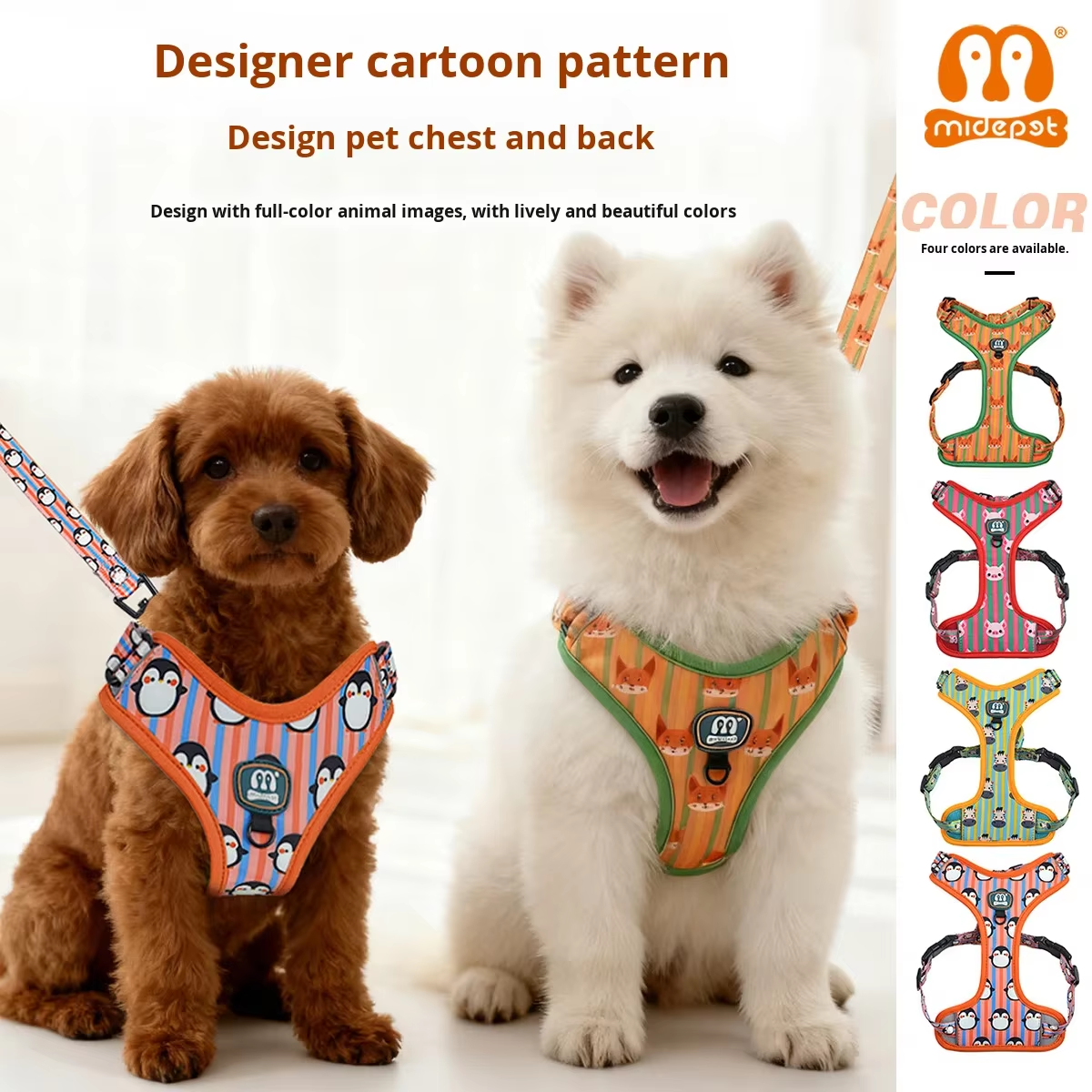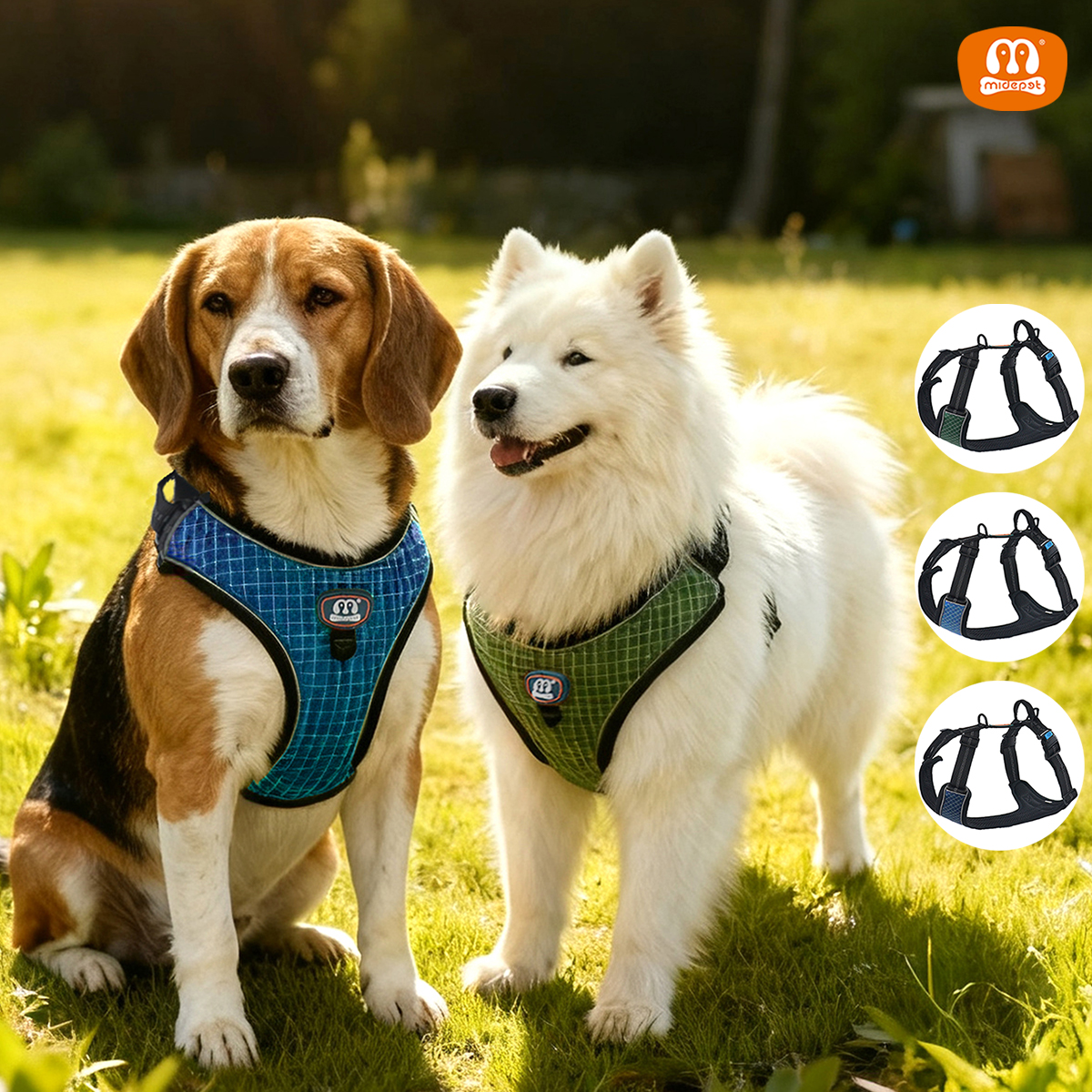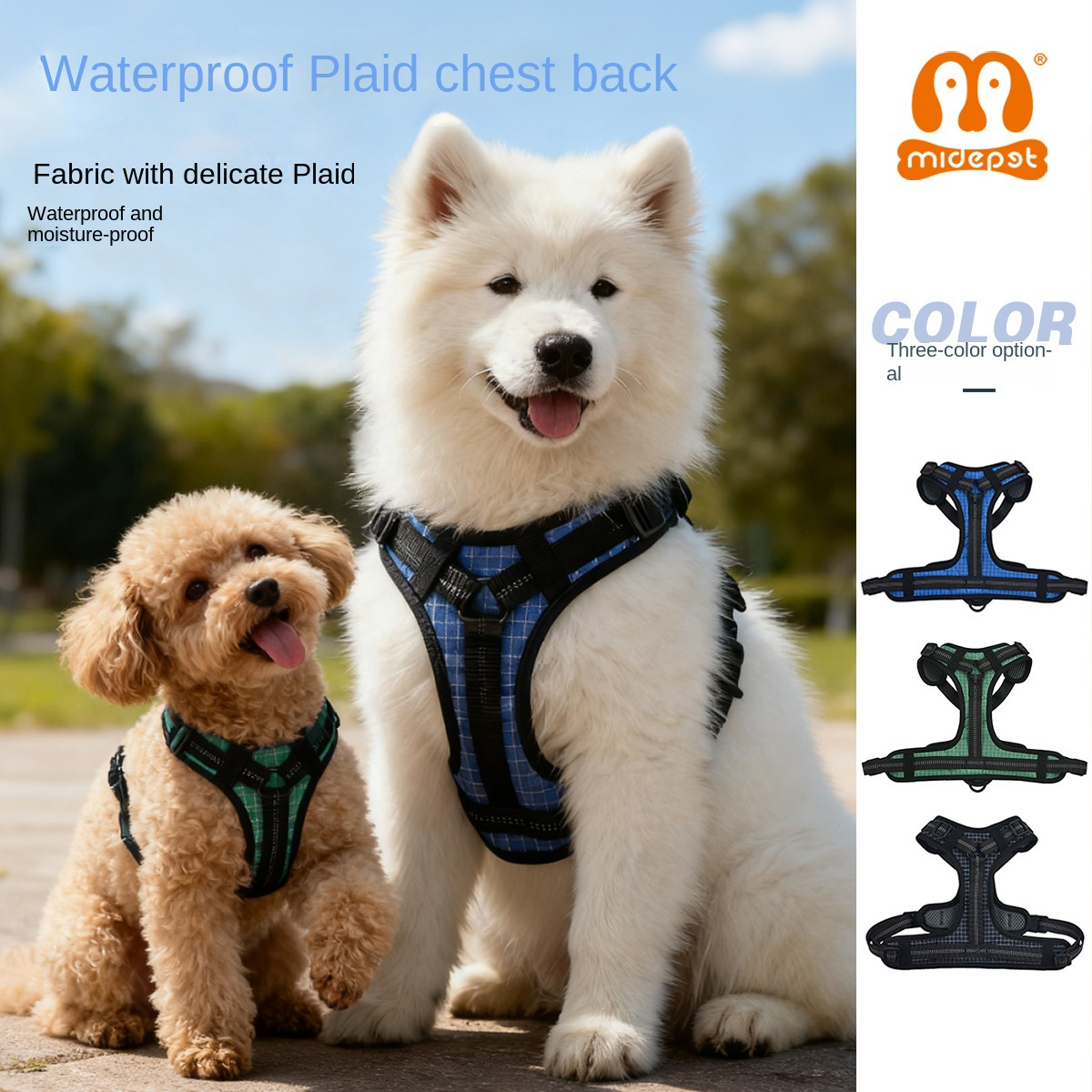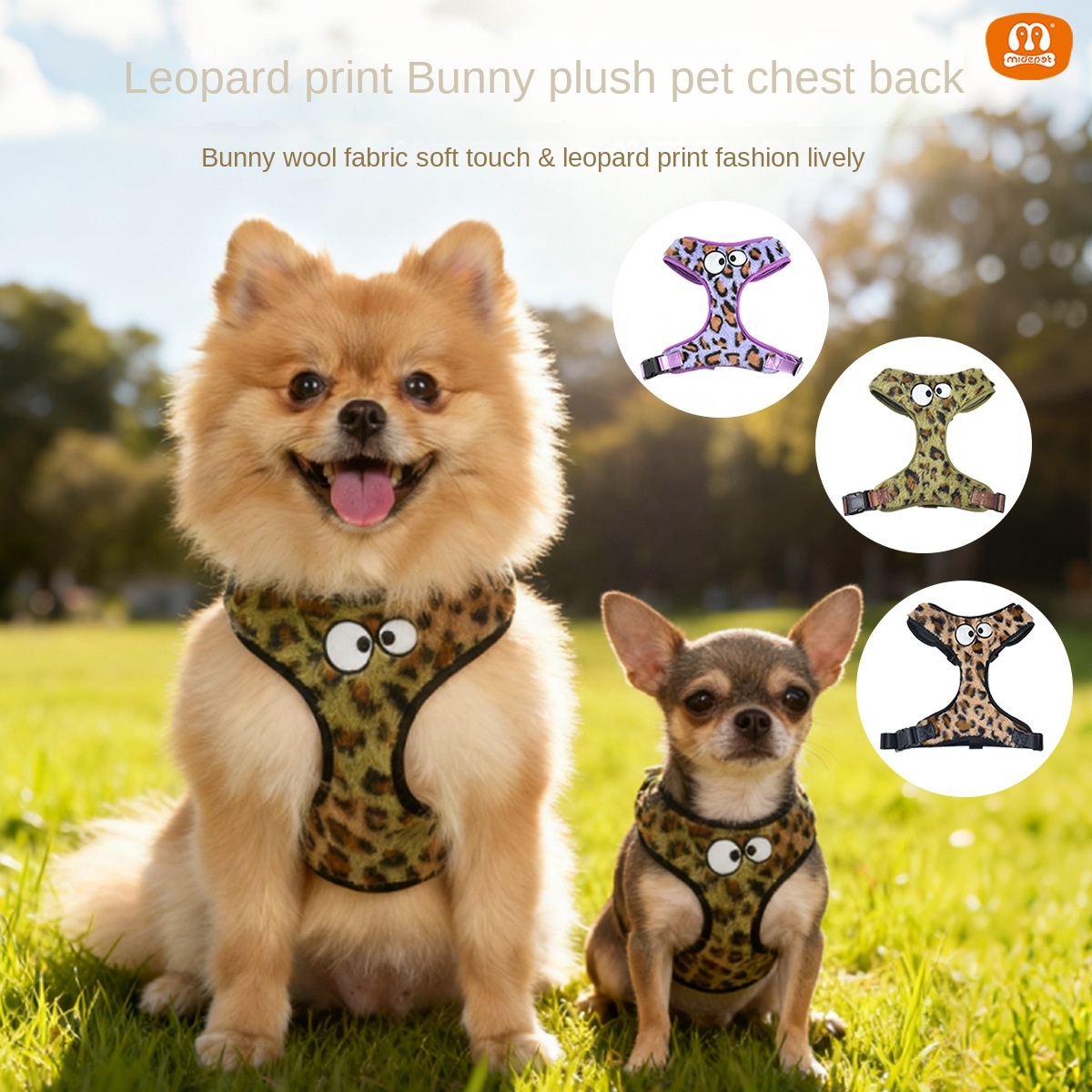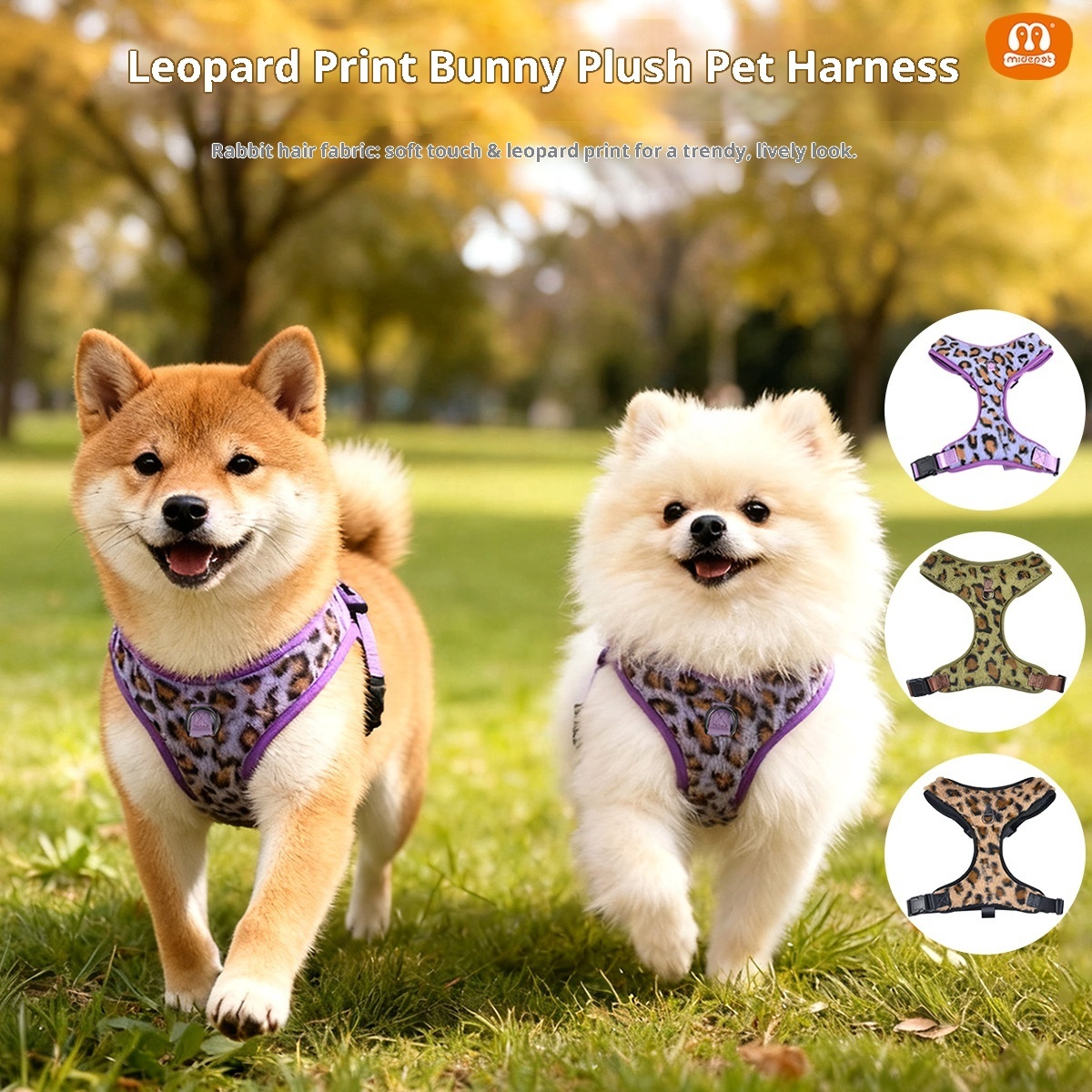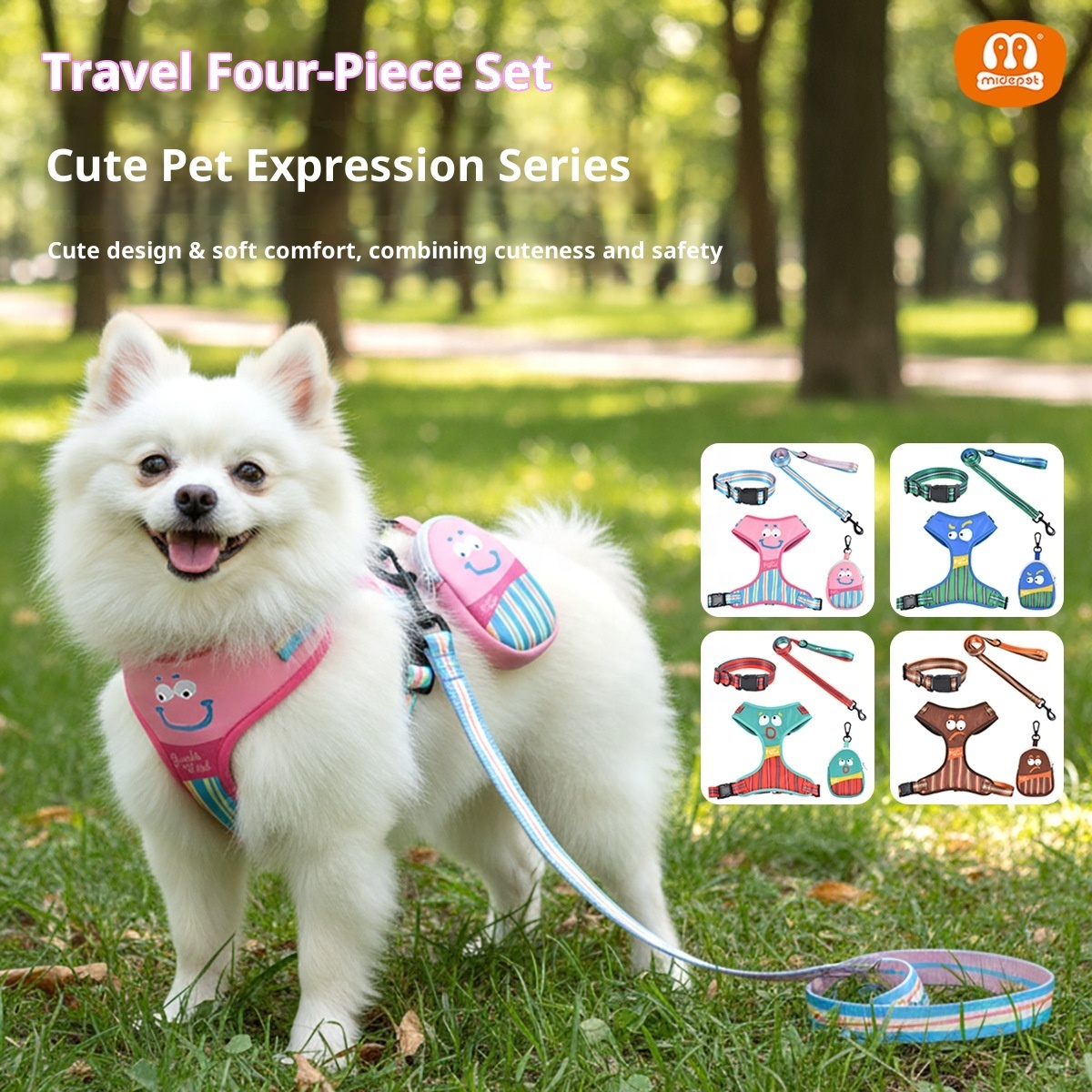Different types of dog collars and their advantages
Dog Collar Types
Dog collars are not only a common item in pet accessories, but also an important tool for dog owners to care for and manage their pets on a daily basis. Several types of dog collars exist on the market, each with its own unique design and features. Understanding the different types of dog collars and their benefits can help you choose the best collar for your pet to ensure its comfort and safety.
Traditional dog collar
Definition: Traditional collars are usually made of fabric or leather and are simple in design and basic in function.
Benefits: These collars are known for their comfort and ease of adjustment. They can be easily adjusted in size to accommodate dogs of different sizes. In addition, the texture of the fabric or leather is usually friendlier to the dog's skin, making it suitable for everyday use.
Applicable scenarios: Traditional collars are perfect for daily walks and family pet use. Whether you have a small or large dog, traditional collars are an affordable option.
Dog training collar types
Definition: Training collars include shock collars, vibration collars, p-chains, martingale collars and more. These collars are mainly used for dog training and behavior modification.
Benefits: These collars are effective in helping to train dogs, such as correcting undesirable behaviors through shocks or electric shocks, or controlling pulling behaviors through p-chains and martingale collars.
Scenarios: Training collars are particularly suitable for the behavior modification and training phase. They can help with over-excited or disobedient dogs.
Dog head collar
Definition: Head collar is designed to cover the dog's head, unlike traditional collars, it helps to better control the dog's head movement.
Benefits: The head collar prevents dogs from pulling and improves the owner's control over the dog. This is especially effective for dogs that need strong control during training.
Applicable scenarios: Suitable for dogs that are prone to pulling or have high strength for walks and behavior control.

Reflective dog collar
Definition: Reflective collars have reflective material added to their material to increase visibility at night.
Benefits: The main advantage of this type of collar is to enhance the visibility of your dog in low light environments, which in turn improves safety.
Scenario: Ideal for nighttime walks or in low-light environments to ensure your dog's safety.

Allergy dog collar
Definition: Anti-allergy collars are made from specific materials, such as natural fibers or hypoallergenic materials, designed to reduce irritation to your dog's skin.
Benefits: These collars are especially suitable for dogs with sensitive skin and can reduce allergic reactions or skin discomfort.
Scenarios: For those dogs that are prone to skin allergies, this type of collar can provide better comfort and protection.

Conclusion
Understanding the different types of dog collars and their features will help you choose the right collar for your dog's specific needs. Whether it's for daily use, training or special needs, choosing the right collar can improve your dog's comfort and safety. Depending on your dog's type of activity and specific needs, choose the best collar for your pet's happiness and health.




